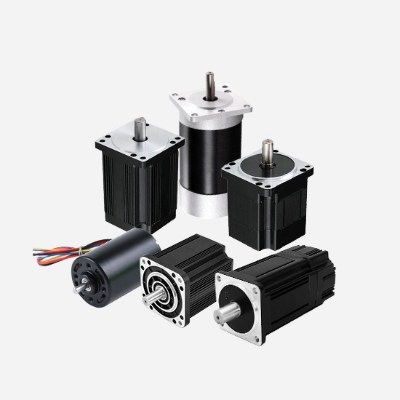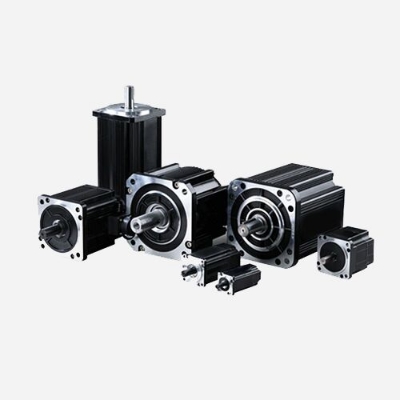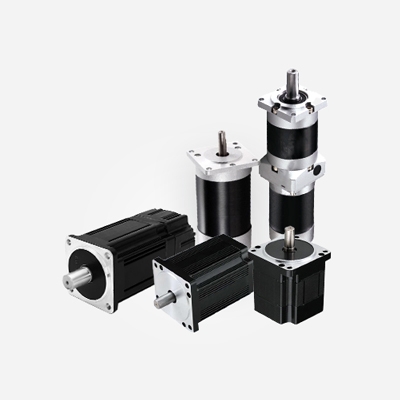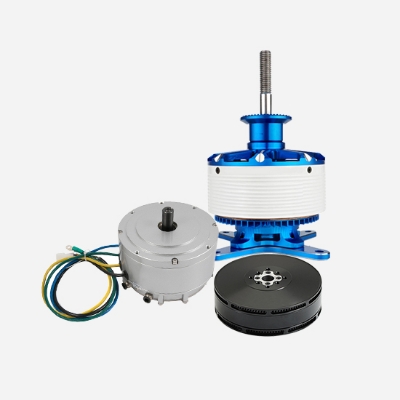In the world of remote control (RC) boats, performance and efficiency are always top priorities for enthusiasts and professional players alike. Whether you're a champion on the racing circuit or a player enjoying a leisurely cruise on the water, a high-performance power system is the key to success. The brushless RC boat motor is undeniably one of the most highly regarded choices among many power systems. Today, brushless.com will dive into the advantages, technical principles, and how it can enhance your RC boat experience.
What is a Brushless RC Boat Motor?
Simply put, a brushless RC boat motor is a type of electric motor that does not use brushes. It converts electrical energy into mechanical energy to propel the boat at high speeds across the water using electronic control. Unlike traditional brushed motors, brushless motors have no internal brushes, eliminating the energy loss, wear, and overheating issues caused by brush friction. This efficient design makes this type of motor ideal for users who demand high speed, efficiency, and low maintenance.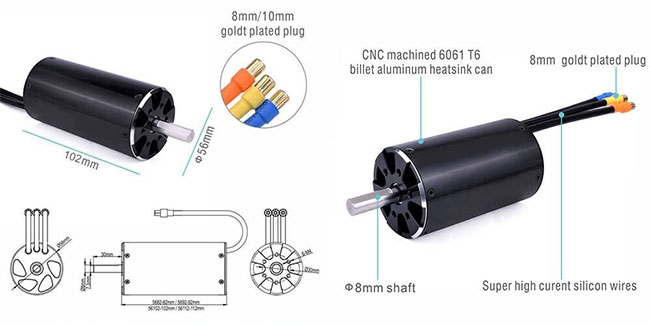
Advantages of Brushless Motors
- High Efficiency and Long Run Time
One of the most notable advantages of brushless motors is their high efficiency. Since there is no physical contact between brushes and the commutator, energy loss during the conversion process is significantly reduced. For RC boats, this translates into longer run times and sustained power output. You can enjoy extended sailing time on the same battery capacity without frequent recharges.
- More Powerful Performance
For those seeking speed and performance, the brushless RC boat motor is an ideal choice. Brushless motors generate higher torque and greater rotational speed compared to similarly sized brushed motors. This allows your RC boat to accelerate faster and gain a competitive edge in intense racing competitions. Whether it's a sprint on a high-speed course or power-demanding water maneuvers, the brushless RC boat motor can handle it perfectly.
- Low Maintenance and Long Lifespan
Without brushes, there’s no need to worry about wear and tear due to friction, as is the case with brushed motors. Brushes in brushed motors are consumable parts that need regular replacement. Brushless motors, however, are designed to be more durable and reduce wear between mechanical components, requiring almost no maintenance. Additionally, without the heating issues caused by brush friction, brushless RC boat motors are more stable during long periods of high-speed operation.
- Smooth Control Experience
Brushless motors not only offer high efficiency and strong power, but they also boast exceptional responsiveness. Thanks to their electronic control, they can quickly adjust rotational speeds, providing a more sensitive and smooth control experience. This greatly enhances the maneuverability and responsiveness of RC boats, particularly when sailing in complex water environments, ensuring more precise operations.
How Does a Brushless RC Boat Motor Work?
To understand how a brushless RC boat motor achieves high performance, it’s important to grasp its working principles. Traditional brushed motors rely on brushes and a commutator to switch the current, whereas brushless motors use an electronic controller (ESC) to precisely manage current switching. Based on the rotor’s real-time position, the ESC alternates the current flowing through multiple coils, creating a continuous magnetic field that drives the motor’s rotation. This method not only improves efficiency but also reduces mechanical friction, extending the motor’s lifespan.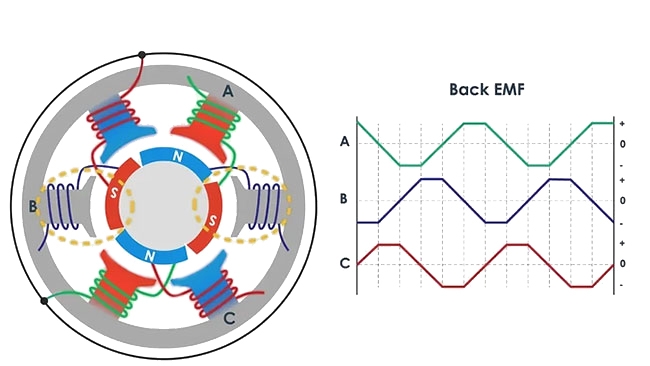
Without the limitations of brushes, brushless RC boat motors can achieve higher rotational speeds and torque output. Additionally, the ESC can precisely adjust the motor speed based on the user’s controls, ensuring efficient operation in various sailing conditions.
How to Choose the Right Brushless RC Boat Motor?
- Motor KV Rating
The KV rating is an important parameter for brushless motors, indicating the number of revolutions per minute (RPM) the motor generates per volt of input. Generally, the higher the KV rating, the faster the motor speed, making it suitable for high-speed sailing. Motors with lower KV ratings provide more torque and are better for applications with heavier loads. Choosing the right KV rating based on your RC boat type and sailing needs is essential.
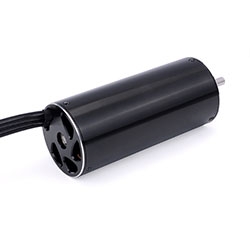
- Boat Size and Weight
The size and weight of your RC boat are also crucial factors when selecting a motor. Larger RC boats require more powerful motors, while smaller boats can use lighter motors for greater agility.
- Battery and ESC Compatibility
Ensuring the voltage and current specifications of the motor, ESC, and battery match is vital. If the motor and ESC are not compatible, it may result in underperformance or even damage to the motor or ESC. Similarly, the battery’s capacity and discharge rate should match the motor’s power demands to ensure optimal run time and power output for your RC boat.
Overall, the brushless RC boat motor is one of the most popular power systems on the market today for RC boats. Its high efficiency, strong power, low maintenance, and smooth operation experience make it the ideal choice for both racing and recreational players. If you’re looking to upgrade your RC boat or gain an advantage in competition, a brushless motor is definitely an option you shouldn't overlook. Whether it's fast water drifts or long-distance cruises, the brushless RC boat motor provides you with stable, powerful, and lasting propulsion.
By understanding these technical details, you can better choose a brushless motor that suits your needs and enjoy a more exciting RC boat sailing experience.

